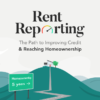Thanks to relatively new changes in FHA guidelines, the minimum credit score to qualify for an FHA loan is now 500. A 580-credit score will qualify you for the minimum FHA down payment of 3.5%.
For those of you just skimming this article for tidbits (we see you, it’s cool), let’s cut to the chase. You can be a first-time home buyer with poor credit. However, this doesn’t mean you shouldn’t try to repair your credit first.
QUICK TIP: A 500 may be the FHA financing credit score requirement but always be working to increase your score because the average credit score DENIED by FHA lenders is actually in the low 600’s.
An intro to credit and home loans

So, you’re thinking about buying a house and you just pulled your credit. Congrats! That’s a great first step. However, if your score is so low, you’d see it and “swipe left”, it may be time to make some adjustments.
But first, let’s talk loans. Specifically, let’s talk Federal Housing Administration (or FHA) loans. These loans work well for many first-time homebuyers because they are backed by the Federal Government. This opens the door for the traditional lender (like a bank) to take more risk than they may normally, knowing that the federal government is offering a certain level of insurance. Great news if you’re not prepared to put 20% down on your first home!
There are a few different types of FHA loans and the most common for first time home buyers is a fixed-rate mortgage or an adjustable rate mortgage.
Fixed rate mortgage
What’s the easiest way to understand FHA loan types? The names give them away! A fixed rate mortgage is exactly what it sounds like. The mortgage amount, complete with interest, will stay the same over the entire length of the loan. This helps you budget for the long term without being worried about the market and how rates might change.
NOTE: This applies to the mortgage and interest payment only. Most home buyers will see fluctuation from year to year in other associated costs they pay with their mortgage, like home insurance or taxes.
Adjustable rate mortgage
You guessed it, this mortgage rate is adjustable. Initially, you may have a guaranteed interest rate but that’s temporary and after the initial period, your interest can change as frequently as once or twice a year. The good news about this loan is that it may initially be lower than a fixed rate mortgage. The bad news is that you won’t be able to budget your payments for the long-term, or even control how much it could go up. Carefully consider using an adjustable rate mortgage, also known as an ARM.
Changes to FHA qualifications
Next up, let’s discuss changes. The Federal Housing Administration has the ability to adjust qualifications such as FHA minimum credit score requirements, lending limits and more. At this time, there are no updates published for 2019 but it’s always wise to work with an FHA lender who can keep you up to speed on the latest policies.
Another consideration with an FHA loan is what lender you will work with. Although you may technically qualify for a loan under the published guidelines, a lender has the right to apply stricter minimums. After all, the FHA backs the loans, but the bank issues them and may be penalized for any defaulting mortgages.
Here’s what you might expect lenders to look for
A higher credit score than published minimums. A 500 may be the FHA financing credit score requirement but always be working to increase your score because the average credit score DENIED by FHA lenders was actually in the low 600’s.
Expect to have your employment and income verified, even though it’s not technically required. The length of time you’ve been at your job can also be a factor – the longer the better!
The ability to make a larger down payment than the minimum and/or having a savings account or other assets is a positive when it comes to your overall risk factor.
Rent payments – believe it or not, what you’re currently paying in rent may help lenders decide if you can afford your new mortgage payment. If you’re renting in your grandmother’s basement for $150 a month, for example, adjusting to a $1,500 a month mortgage could be difficult.
Talk to different banks and lenders

Consider these factors when you begin saving for your first house but don’t let them stop you in your tracks! If you’re starting with a minimum credit score in the low 500’s, take the time to talk to different lenders. There are many who will work with you to get you approved.
And, if the thought of calling fifteen different banks makes your head spin, not to worry! Ask your realtor for a trusted mortgage broker who may be able to shop your details with multiple lenders at one time and get you the best deal.
Improve your chances of buying your home
In the meantime, let’s get to work on how to improve your chances of getting into your first home, and getting the best price for your mortgage. The better your credit, the better position you’re in to get the deal.
With credit, there are five categories. Grab your score and see where you fall based on these general guidelines:
Bad Credit – Below 500
Poor Credit – 501-600
Fair Credit – 601-660
Good Credit – 661-780
Excellent Credit – 781-850
Anything outside of the excellent category means there’s room to improve. Along with the suggestions above that outline what a lender may look for, here are some additional steps you can take:
Pay down debts
You’ll likely hear some unfamiliar terms as you begin your home buying process and one is “income to debt ratio”. This simply means the more you make, in comparison to the less debt you have, the better.
Think of it this way – if you have a rent payment, car loan, credit cards and a student loan that add up to $3,000 a month and you bring home $3,500, your income to debt ratio isn’t so great. But take the same bills and let’s say you bring home $5,500 a month. The chances that you’ll be able to pay a mortgage consistently just went up in the eyes of the lender. By paying down debts, you’re improving your ratio.
Increase your income
Obviously, this is the second way to increase your income to debt ratio. But think through any changes here carefully. Asking for a raise is one way – just make sure you have been at your company long enough and the ask makes sense. A second job or side hustle is another great way to put some extra money aside and set you up to have that larger down payment or big savings account that banks love to see!
Don’t fall behind
Along with paying down debt and increasing your income, one of the best ways to improve a credit score is to stay current on your payments. Remember, as the bank reviews whether or not to lend you money (likely, a LOT of money), they’ll be looking at your history. If you have trouble staying current with a smaller loan, like a car or credit card, that can negatively impact your credit score and send the message that you may have trouble paying a mortgage.
As you work to improve your credit, remember that it’s not just about getting approved for the loan, it’s also about getting the most favorable terms possible. Putting less money down and getting a lower interest rate will keep more money in your pocket at the end of the day!
Repairing your credit
Another option, in addition to the work you’ll be doing on your own, is to work with a credit repair company. Take time to research your options and only work with companies that have a good reputation and some solid guarantees. Getting scammed in the midst of this process is not what we’d consider fun! But getting some solid, professional assistance can help tremendously, especially if you have a lot of outstanding items on your credit report.
Depending on where you start, repairing your credit can take a few months to a few years. But don’t let that intimidate you. Think of it like a diet. The more weight you have to lose, the longer it will take. Let’s say you want to lose 20 pounds in a year. That year will pass whether you exercise and eat better or not. Getting discouraged before you get started doesn’t make sense because after even one month you’ll start to notice a difference. And in six months? You’ll be a different person!
Keep at it!

Credit works the same way. It doesn’t happen overnight, and it doesn’t go from 500 to 850 in one jump. Take the time to work the steps we’ve outlined here, and you’ll be well on your way.
Continuing to actively take steps to improve your credit, save money and identify great lenders to work with is important. Along with those actions, take the time to see if you qualify for down payment assistance!
Visit the HUD website for a list of programs by state but don’t stop there. A quick Google search may be well worth your time. Enlist the help of experts as well – ask your realtor, mortgage broker and title company what they’ve seen for other clients and apply for each program you find. We believe in the value of hard work and persistence when it comes to saving for a home, but free money is definitely our favorite!







